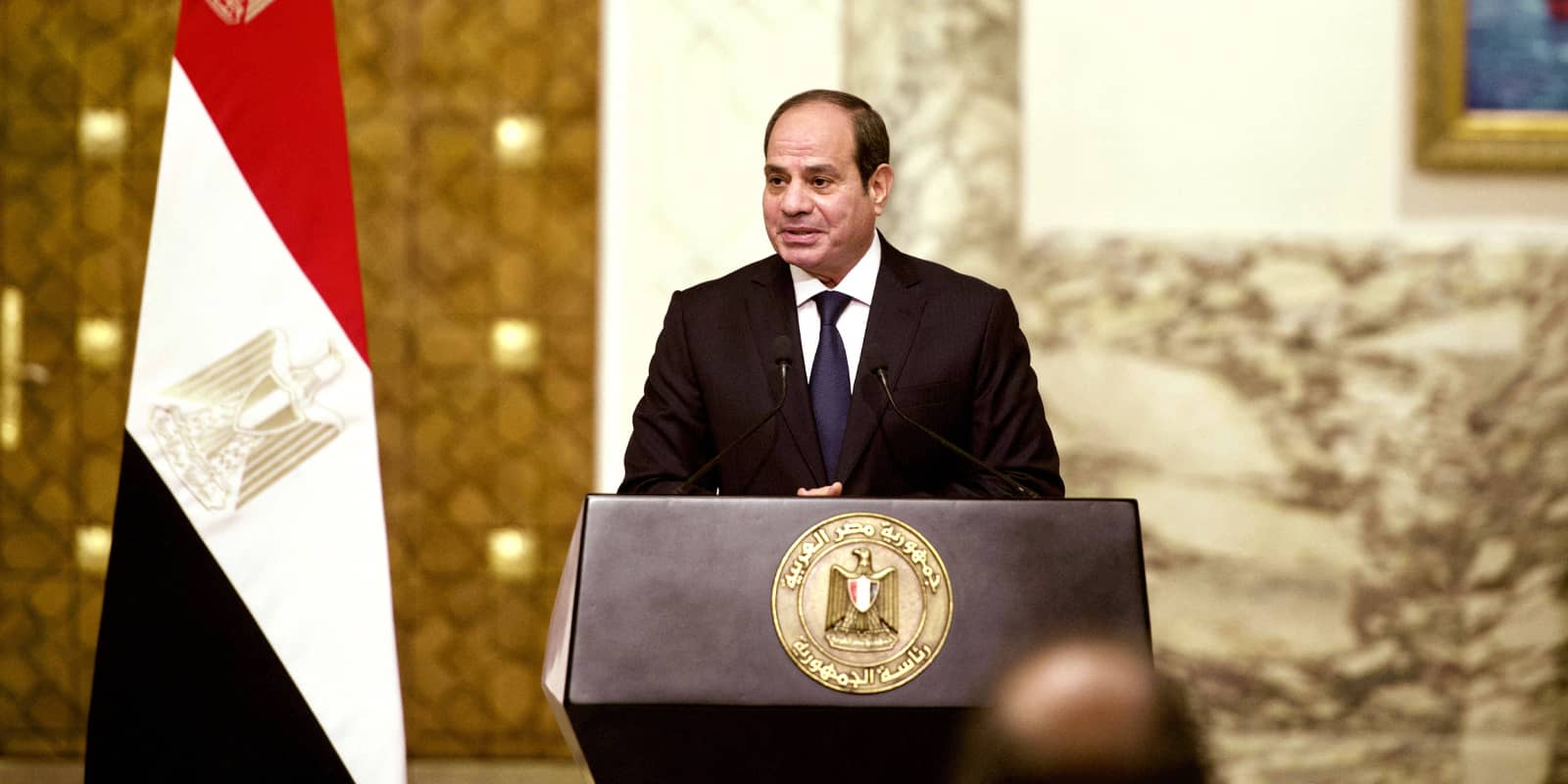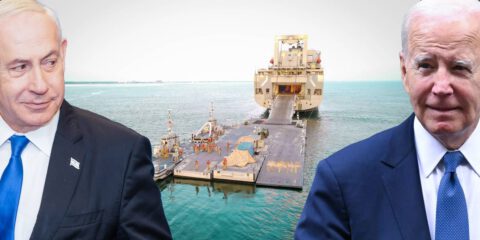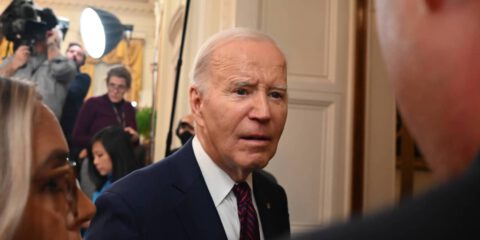Egyptian President Abdel Fattah El-Sisi won a fully expected victory in the December 2023 elections for another term – with some 90% of the vote: This however does little to provide a solution for his country’s acute problems.
Egyptian President Abdel Fattah El-Sisi won a fully expected victory in the December 2023 elections for another term – with some 90% of the vote: This however does little to provide a solution for his country’s acute problems. The Egyptian pound is in free fall; investors and business leaders are leaving; essentials are in short supply; tourism is in decline; and now, attacks on Red Sea shipping have led to a plunge in Suez Canal income, and the failure of talks with Ethiopia on the filling of the Renaissance Dam has cast a shadow on Egypt’s vital water supply. It is against this background that the engagement with both Israel and the Palestinians gives Egypt – due to its ability to influence both sides – a regional and international standing that can serve its national interests.
Israel cannot accept an Egyptian initiative that entails an end to the fighting without the defeat of Hamas. Furthermore, it must seal off Gaza – in military terms – from all directions. Yet Israel does have an interest in ensuring, as in previous situations since 2009, that Cairo be the key player when it comes to the hostage situation – and that it will play a role in establishing a new reality in Gaza once Hamas is no longer in power. To secure Egypt’s role and shore up the dialog with its leadership, Israel must:
- Clarify once again, unambiguously, that Israel has no intention of pushing the population of Gaza over into Sinai.
- Coordinate as much as possible all actions taken to assert control over the so-called “Philadelphi” Corridor.
- View Egypt as a key partner in designing specific aspects of “the Day After”.
- Outline plans that would make Northern Sinai – when the day comes – the key hub and economic hinterland for reconstruction in Gaza, thus providing for growth in the area and a disincentive for the local population to support ISIS.
- Continue to help Egypt’s economic and energy integration in the Eastern Mediterranean.
- Help Egypt secure Congressional support in the United States, despite persistent questions about Sisi’s human rights record.
An election won at a time of severe setbacks
As could have been predicted well in advance, President Abdel Fattah El-Sisi, in power in Egypt since the overthrow of Muhammad Mursi in July 2013 – and elected in 2014 and again in 2018 – met with no difficulty in his bid to secure a third term in office. He won 89.6% of the vote, against a number of nearly anonymous pseudo-candidates. At least in theory, this should serve to re-establish the legitimacy of his rule, both at home and in the eyes of regional and international players. And yet, in early 2024 he faces a troubling combination of woes and challenges – above all on the economic front – that, over time, may amount to a threat to the social order and hence the regime’s stability.
The Egyptian economy has been plagued for more than a year by the consequences of a severe balance of payments problem, the collapse of the Egyptian Pound – which has lost more than half its value against the US dollar since the autumn of 2022 – and a growing difficulty in abiding by the requirements of the International Monetary Fund, which has already led to a delay in the disbursement of the loan it was supposed to receive under the terms of a December 2022 agreement. As a result, Egypt’s credit rating was downgraded by Moody’s, and there are signs that investors, including some of Egypt’s wealthiest men, are shifting their activities to the more stable and comfortable environment of the Gulf monarchies.
One of the driving factors behind this crisis is the shortage of essential supplies and their rising prices – above all, due to the war in Ukraine, which until February 2022 was the main source of Egypt’s wheat imports. Over the years, the long-term damage inflicted upon Egyptian agriculture by the Aswan High Dam (which stops the fertile silt from being carried downstream by the river) has diminished crop yields: recently, as sugar cane crops dwindled, Egypt’s 155 years old sugar factory in Minya was forced to close down. Another factor is the steady increase in Egypt’s population, which has gone well past the one hundred million threshold in recent years – including, by some estimates, up to 9 million refugees, mainly from Sudan but also from war-torn Libya and Syria. The combined result is that Egypt has turned from a grain exporter into one of the world’s largest importers of wheat and cereals. This dependence is the main reason that the Egyptian national debt has doubled since 2016, despite reform efforts made by Sisi early on in his years in power, such as cutting fuel subsidies.
Recent events have dealt a further, double blow to Egypt’s sources of revenue. Before the war in Gaza broke out, the tourist industry – one of the pillars of the Egyptian economy and a vital source of foreign currency – was already showing signs of decline, enhanced by regional tensions and violence. The slow revival which followed the end of the COVID-19 crisis has once again been thrown into reverse. The second and more recent blow – although this was initially denied by the Suez Canal Authority – is the increasingly severe decline in income from passage through the Canal due to the Yemen Houthi attacks on Red Sea shipping. Many major shipping groups now prefer the much longer route around the Cape of Good Hope, rather than risk sailing through the Bab el-Mandeb Strait at the mouth of the Red Sea.
The Ethiopian Renaissance Dam is another troubling issue that casts a long shadow over Egypt’s economy – and in the eyes of some Egyptians, over the nation’s sheer survival (a somewhat exaggerated fear, since Ethiopia does not intend to stop the Blue Nile altogether). The repeated attempts to achieve a negotiated agreement over the rate at which the reservoir would be filled have failed, and after the collapse of meetings in Addis Abeba in December 2023, Egypt has reverted once again to thinly veiled threats warning that they will not tolerate a shortage of water for a nation of one hundred million people. In practice, however, Egypt’s military options are limited, not least because of the civil war currently raging in Sudan.
Egypt’s role in the Gaza war
At these difficult times, it is Egyptian involvement in Palestinian affairs – Sisi hosted Palestinian Authority President Mahmoud Abbas for a tripartite summit with King Abdullah of Jordan on January 10, 2024 –specifically in Gaza, that lends Egypt additional weight, regionally and internationally. This is due to the direct and effective levers it has on Hamas “on the ground” (or rather under it) as well as its straightforward dialog with the Israeli leadership. Both efforts are led by the head of the Egyptian General Intelligence Directorate, Maj. Gen. Abbas Kamel. Not for the first time, Egypt finds itself in fierce, and practically open competition with Qatar, which hosts the Hamas leadership in Doha. Still, it has been the Egyptian efforts that have borne fruit so far with the hostage-prisoner swaps of November 2023.
Notably, Egypt avoids any semblance of formal legitimacy for Hamas operatives. While some of the movement’s leaders do reside in Cairo, Egypt does not grant them official status. This reflects Cairo’s continued commitment to the PA and Mahmoud Abbas as the sole representatives of the Palestinian people – another reason being Hamas’ affiliation with the hated Muslim Brotherhood, Sisi’s sworn enemies. In its 1988 covenant, Hamas explicitly defined itself openly as a branch of the Ikhwan – the Muslim Brotherhood – even if later, in their 2017 policy document, wary of Sisi’s hostility, they muted this aspect. As a result, it is not the Egyptian Ministry of Foreign Affairs but rather Kamel’s organization which manages direct contacts with Hamas’ command structure in Gaza.
At the same time, Egypt’s control of the southern approaches to the Gaza Strip, and the crucial function of the Rafah Crossing, give Cairo unique leverage over Hamas. (There was widespread anger in Egypt over the false impression that the Israeli defense team in the Hague accused Egypt of being responsible for the failure to arrange for the entry of humanitarian supplies to Gaza). Technical arrangements make it possible for Abbas Kamel to have direct – and occasionally blunt – conversations with Hamas leaders, including Yahya Sinwar, as well as to maintain at all times open channels with Israel. All these aspects place Egypt in the lead: hence it was Cairo that put forward to both sides a plan for resolving the hostage situation that in its final phase would also lead to an end to the fighting (with Hamas surviving in Gaza). Israel at least gave it a hearing at the cabinet level; Palestinian Islamic Jihad and then Hamas rejected it out of hand. But Egypt’s efforts continue.
Egypt on Israel’s agenda
It continues to be in Israel’s interest for Sisi’s Egypt, rather than Qatar, to maintain the lead on the hostage situation, as both military pressure and indirect channels of communication are being used to generate progress once again. This preference should be shared with the Biden administration, which seems to be unduly beholden to the Qataris and at times insufficiently attentive to Egypt’s needs – and Egypt’s importance.
As Israel’s leadership has made all too clear, it will not accept an outline that means, in practice, an end to the fighting while Hamas retains its hold on power over at least parts of the Gaza Strip. There are reasons to believe that the Egyptians themselves, regardless of their formal position, share the understanding (as do others in the Arab world) that the future of the region may well depend on Israel’s ability to dismantle Hamas and take down a notch the “Muqawama” (Resistance) camp – led by Iran – and the myth of heroic achievements that has been built around it.
At the same time, Israel should invest consistent efforts at the highest level to sustain open channels of communication with Egypt, focusing on six key aspects:
- Allaying the fears that Israel intends to deport or induce masses of Gazans to migrate into Sinai. Due to repeated statements by senior members of Israel’s governing coalition, Cairo views this as a real threat, and the concerns expressed by Egypt are not a mere anti-Israeli propaganda ploy. Given the almost mystical attachment of Egyptians to “every grain of sand” of the country’s soil, this is a sensitive issue; it also raises the specter of renewed terror activity in northern Sinai, after years of bloody warfare against the “Sinai Province” of ISIL (Da’esh). An unambiguous Israeli commitment in this respect – even if it entailed political difficulties at home – would reassure Egypt and could provide legitimacy for its continued engagement with Israel on matters of importance to both countries – arguing that “this is what enabled us to prevent the deportations.”
- Proceeding carefully and in close coordination with the Egyptian military as regards the achievement of full operational control of the so-called “Philadelphi Corridor.” Such control will ultimately serve the interests of Egypt as well: but the obvious sensitivity and the need to avoid friction requires further work to secure mutual understanding. Israel after all gave its consent again and again in the last decade to the deployment of significant Egyptian forces in Sinai, well above the levels allowed under the Military Annex of the 1979 Peace Treaty. It is thus entitled to a similar Egyptian recognition of the IDF’s operational needs.
- Bringing Egypt into the inner circle of consultations on “the Day After” in Gaza, after the Americans but ahead of others – once Israel and the Biden administration engage in an orderly discussion of options and modalities, looking toward the future. In any strategic design chosen, Egypt is bound to play a role given its geographical position and its vital interests – although neither Egypt nor Israel are planning to rule Gaza directly by military force, as Egypt did from 1948 to 1967 and Israel did briefly in 1956 and again from 1967 to 2005.
- Offering Egypt a vision whereby northern Sinai, which saw – as mentioned above – intensive warfare between the regime and ISIL, can become a vital logistical and economic hinterland for the reconstruction effort in Gaza, with significant benefits for all.
- Building upon this option, and with a wider regional view, Israel should promote the economic and energetic integration of Northern Sinai, and of Egypt more generally, with other partners in the Eastern Mediterranean – including an improved port at al-Arish. Greece and Cyprus could join Israel and Egypt to create a new transport architecture which could also assist Gaza in “the Day After”.
- Amidst all this, Israel and its friends should systematically work to improve Egypt’s standing in the American (and allied) public domain, in Congress, and with key administration figures – seeking to underline the importance of Egypt’s role and the need to find solutions for its present difficulties, while neutralizing as much as possible the counter-pressures by “progressives” who remain focused on the iniquities of Sisi’s regime.
JISS Policy Papers are published through the generosity of the Greg Rosshandler Family.
Photo: IMAGO / ABACAPRESS / Messyasz Nicolas








 - בניית אתרים
- בניית אתרים